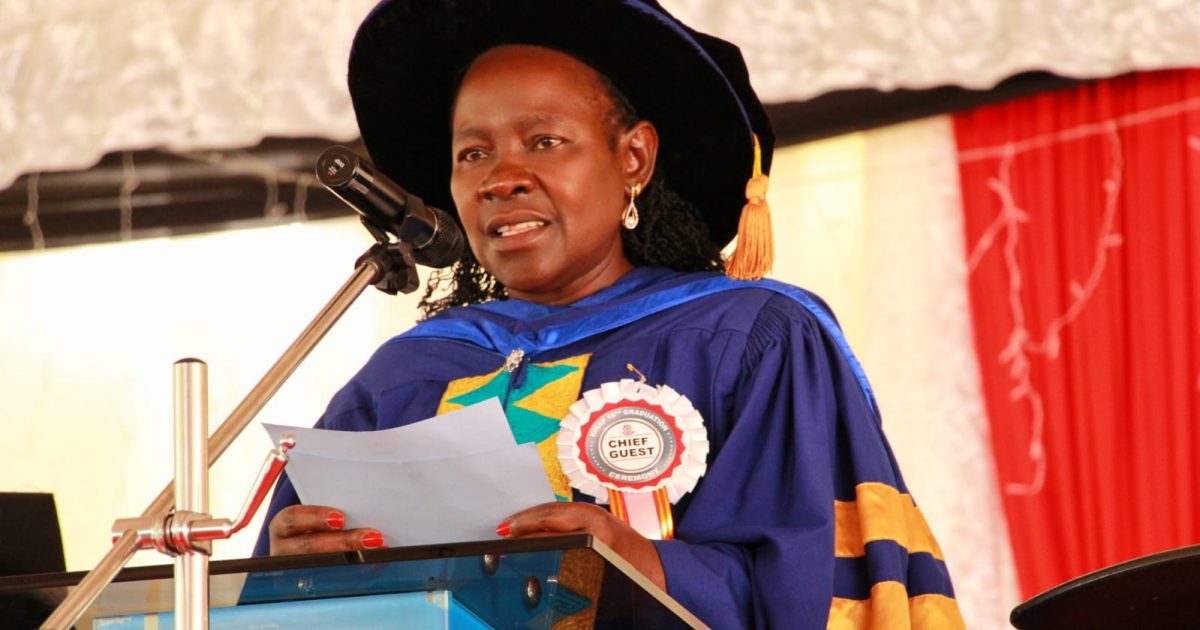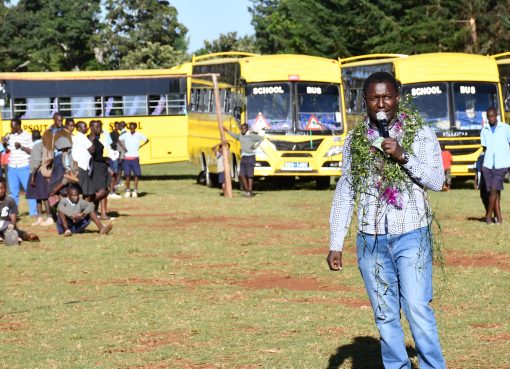The government in partnership with the German development organisation GIZ, is currently implementing a dual training model in 67 TVET institutions across the country.
One of the key features of the new TVET curriculum is dual training where trainees undergo at least 50 per cent industrial training and 50 percent classwork.
The pilot phase of the model has already registered success to the extent that a high percentage of trainees placed in industries have been absorbed.
All this is because of the Competency Based Education and Training (CBET) curriculum that has now been fully implemented in the country as from September 2023 and promotes learner-centered training.
Speaking during the graduation ceremony at Kiambu National Polytechnic, Principal Secretary State Department for Technical, Vocational Education and Training, (SD-TVET) Dr. Esther Thaara Muoria said that under CBET, trainees are encouraged to actively engage in their learning journey, taking ownership of their education.
“This shift not only enhances motivation, but also nurtures critical thinking, problem-solving, and self-reflection skills – the very skills that are in high demand in today’s rapidly evolving job market”, she added.
The PS noted that for effective implementation of the CBET curriculum, the State Department for TVET in partnership with Kenya School of TVET and other development partners, has completed retooling of TVET trainers drawn from the initial 11 national polytechnics on CBET delivery and is currently retooling the 13 institutions that were recently elevated to national polytechnic status.
Once the retooling of all TVET institution’s trainers on CBET pedagogy delivery is completed, the PS added that the trainers will be up-skilled in the use of the contemporary equipment provided in the institutions in the recent years.
“The Government shall continue to support technical institutions through development of essential infrastructure as well as enhancing manpower development and deployment to sustain the accessibility and accord each Kenyan an opportunity to access technical training”, she said.
Dr. Muoria who witnessed the graduation of 2,001 students of various genres said the government has taken cognizant of a need to establish an internationally competitive workforce and a dire need to produce graduates who are fully skilled and ready to venture directly in employment and entrepreneurship after graduating.
“The importance of TVET and its contribution towards sustainable development, realization of Education for All (EFA) Goals, promotion of lifelong learning and addressing local and global knowledge and skills gap has been continuously underscored by the Kenya Kwanza Government”, she added.
The PS further said that the State Department for TVET in partnership with the Ministry of ICT and the Digital Economy, TVETA and Konza Techno polis, has been distributing digital labs to TVET institutions and more than 23,000 youths have undergone training on digital skills and online jobs in our various TVET institutions and are able to make good earnings from this initiative.
“In October, the highest earning record by a single individual through the Jitume Program was Sh76, 600 and I want to call upon the TVET trainees and youths in the neighboring communities where the Jitume Labs are to participate in the training as a source of employment,” she said.
Dr. Muoria congratulated The Kiambu National Polytechnic management for championing and establishing an endowment fund which up to now is operating at Sh7.5 million.
The fund will be able to complement the Government’s New Funding Model initiative and be able to give wings to the less privileged in the society.
“I urge other TVET institutions to emulate The Kiambu National Polytechnic and as it celebrates 50 years since inception, the institution has continued to experience tremendous growth both in student enrollment, infrastructure, and in partnerships and collaborations”, the PS said.
Dr. Muoria noted that the Technical and Vocational Education and Training (TVET) sector in Kenya has evolved over the last 40 years and has continued to produce the needed middle-level human resources for the national economy and called upon the graduands to begin the next chapter of their lives by making good choices that will determine their paths.
Kiambu National Polytechnic that was elevated from the previous Kiambu Institute of Science and Technology (KIST) has had a proud history in enhancing skills since its inception in 1973.
By Wangari Ndirangu





